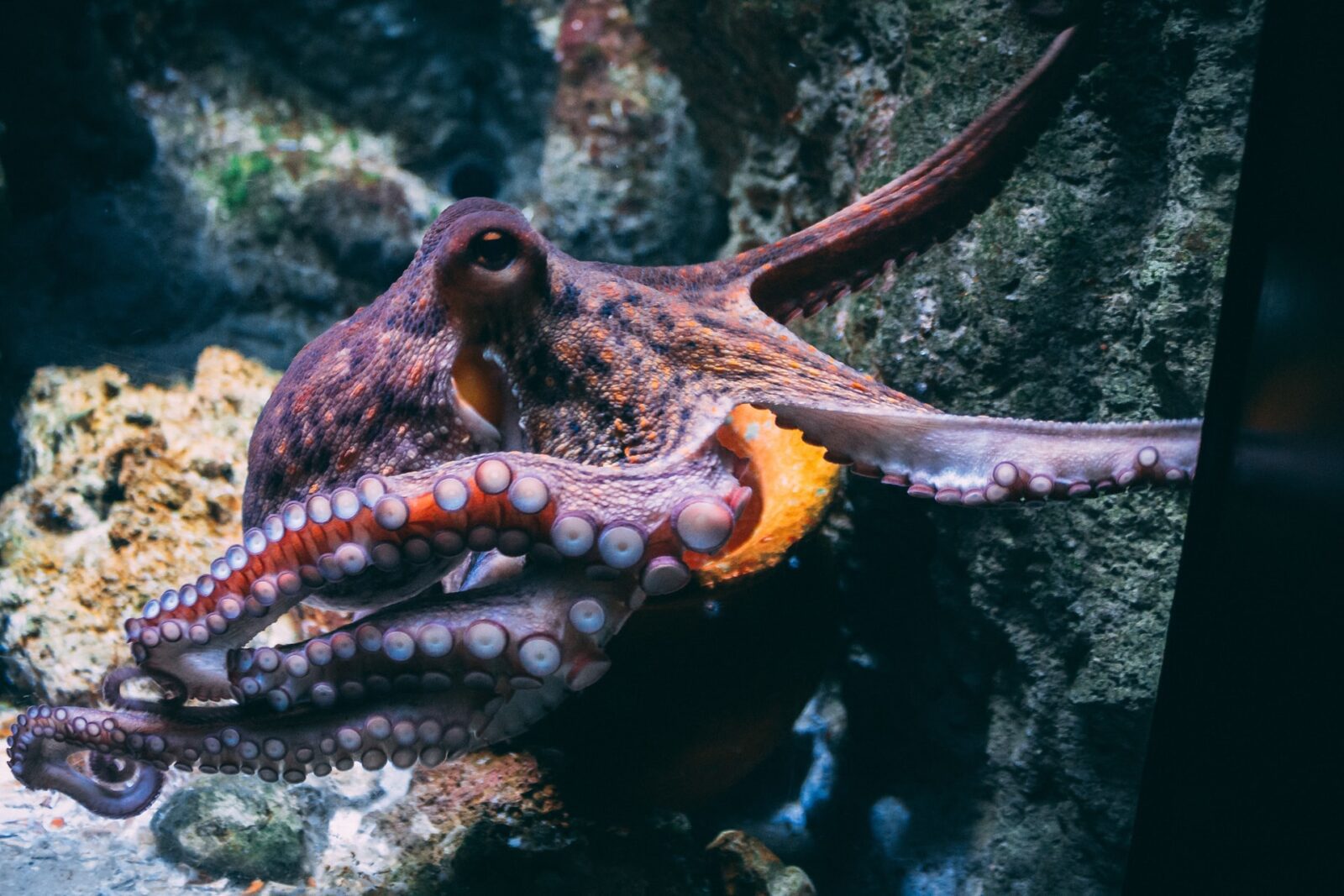An octopus’s neurological and cognitive intricacy may have its origins in a molecular similarity to the human mind, as per a recent research. The amazing intellect of these interesting creatures may be explained by a novel molecular comparison.
The octopus is one of the most remarkable invertebrates on the planet because of its extraordinarily sophisticated mental and cognitive ability. As a result, it is closer in appearance to vertebrates over invertebrates in a number of ways. A new study found that the intricacy of these animals’ neurological and cognitive systems may be derived from a molecular comparison with the human brain.
Two kinds of octopuses, Octopus vulgaris as well as Octopus bimaculoides, have the same “jumping genes” in their brains, according to this study. These fascinating critters’ intellect may have been revealed by a new finding.
As soon as 2001, the decoding of the human genome showed that transposable elements, also known as ‘jumping genes,’ account for over half of the genome’s structure. Transposons may shuffle or duplicate the genome by biochemical copy-and-paste and cut-and-paste methods.
When these movable parts are no longer able to move, their impacts are usually inaudible, and their movement is impossible to detect. The alterations that have built up through the generations have rendered some dormant, while others have been inhibited by the body’s own defensive systems. Even fragmented & broken duplicates of mobile genetic elements may be beneficial to evolution as ‘raw stuff’ that it can shape.
Many of the “jumping genes” in the cephalopod DNA are dormant. The LINE family of genes was found in brain regions critical to these animals’ cognitive capacities when researchers focused on transposable elements still competent in copying and pasting. Scientists believe that the octopus’s brain is essentially similar to those of mammals in many respects.














Leave a Reply